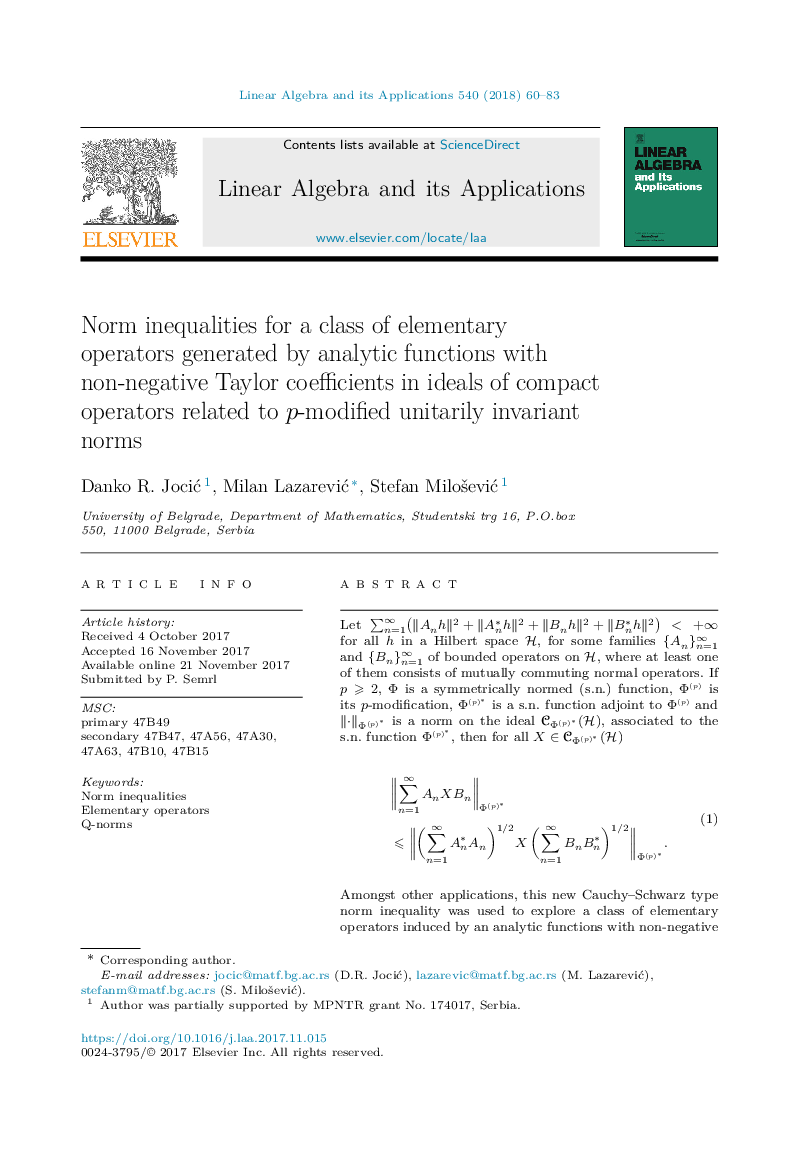| Article ID | Journal | Published Year | Pages | File Type |
|---|---|---|---|---|
| 8898016 | Linear Algebra and its Applications | 2018 | 24 Pages |
Abstract
Let ân=1â(âAnhâ2+âAnâhâ2+âBnhâ2+âBnâhâ2)<+â for all h in a Hilbert space H, for some families {An}n=1â and {Bn}n=1â of bounded operators on H, where at least one of them consists of mutually commuting normal operators. If p⩾2, Φ is a symmetrically normed (s.n.) function, Φ(p) is its p-modification, Φ(p)â is a s.n. function adjoint to Φ(p) and ââ
âΦ(p)â is a norm on the ideal , associated to the s.n. function Φ(p)â, then for all (1)âân=1âAnXBnâΦ(p)â⩽â(ân=1âAnâAn)1/2X(ân=1âBnBnâ)1/2âΦ(p)â. Amongst other applications, this new Cauchy-Schwarz type norm inequality was used to explore a class of elementary operators induced by an analytic functions with non-negative Taylor coefficients to prove that, under conditions required for (1),âf(ân=1âAnâBn)XâΦ(p)â⩽âf(ân=1âAnââAn)(I)Xf(ân=1âBnâBnâ)(I)âΦ(p)â, whenever âân=1âAnâAnâ, âân=1âAnAnââ, âân=1âBnâBnâ and âân=1âBnBnââ are smaller then the radius of convergence of an analytic function f, where AnâBn stands for the bilateral multipliers . Different applications and examples for the obtained norm inequalities are also provided.
Related Topics
Physical Sciences and Engineering
Mathematics
Algebra and Number Theory
Authors
Danko R. JociÄ, Milan LazareviÄ, Stefan MiloÅ¡eviÄ,
